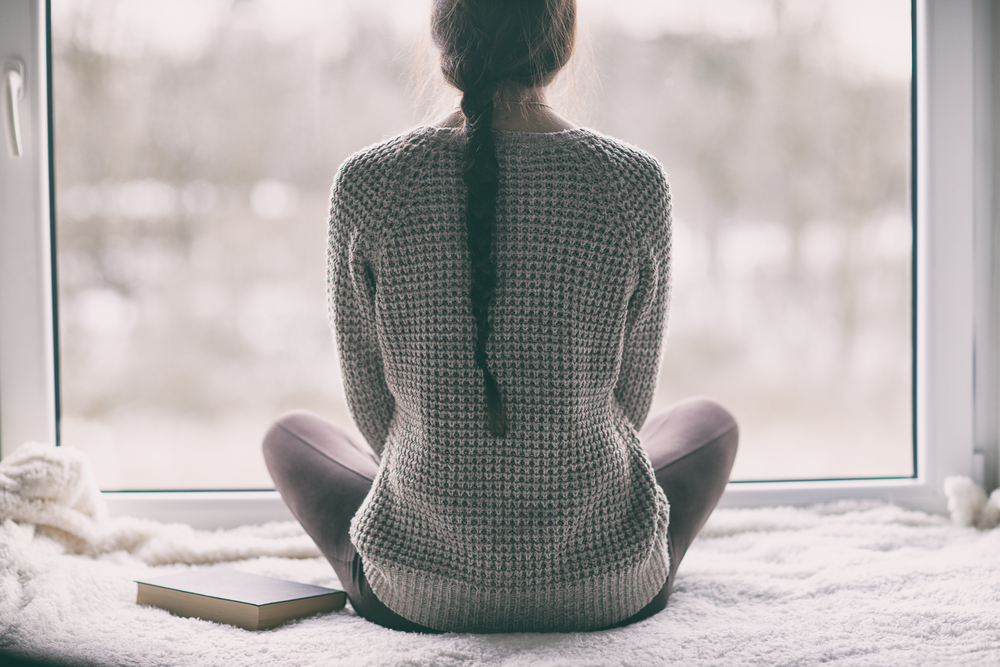I’ve always had a complicated relationship with alone time. I’d happily take a quiet evening in over a late night out with a big group of people — if it was my choice to stay in. But if not having plans wasn’t of my own choosing — or if my plans fell through — I somehow felt something was “wrong.” This has always perplexed me about myself: How can I love “me time” yet still become so anxious and unnerved by an all-by-myself night?
I felt this way for years, until a fateful Friday where I realized I would need to embrace the upcoming 48 hours on my own. With my roommates and boyfriend out of town, and other friends and family members busy with their own plans, I was left with a weekend to do what I wanted. And to be completely honest, I was stressed. Under other circumstances — like after a long work week when I “needed” a couple days of QT-with-Jessica — I would take delight in a quiet weekend. But when I seemingly had no choice but to be alone, my mind retaliated against the idea.
There are many reasons why human beings might not like being alone. For starters, we are social creatures. Some paleontologists believe it’s merely part of our biology: Early humans forged connections with one another as a means of survival, and that inclination stayed with us as we went through evolution. Then there’s the fact that in today’s hyperconnected world, it simply feels wrong if we’re not texting, FaceTiming, liking, or connecting with other people in some way, feeding into the idea that being in our own company (without physical or virtual beings in our path) is not OK.
When we can’t be alone long enough to take adequate care of ourselves, we risk burning out. But social media has made us so fearful of missing out (hi, FOMO) that we become frenzied if our schedules aren’t chock full of social plans — leaving us little time for self-care or self-reflection. I’ll be honest — when I got home from work that Friday, I spent more hours than I’d care to admit staring at my phone screen, scrolling myself into oblivion. I felt a twinge of anxiety and loneliness every time I landed on a picture or post showing the fun I wasn’t a part of. I closed and reopened apps, looked through old photos, did just about anything to avoid feeling disconnected.
Finally, my phone died, and as I began to (frantically) search for my charger, I stopped myself in my tracks. Why am I doing this to myself? I stared at my reflection in the screen of my phone and realized just how stressed I look. Then, just moments after, I felt an almost relief: I didn’t have to how other people were filling their weekends, and comparing their “realities” (however filtered) to my solo act. This almost-instant shift amazed me, and led me to reconsider how I wanted to spend my weekend alone.
I went to sleep that night with renewed intentions for the morning and the two days ahead. Instead of viewing my solitary weekend as a problem that needed to be solved, I’d embrace the solitude and spend my time doing things that would bring me joy. I woke up feeling more refreshed than I had in weeks, probably because I had put my phone away so early the night before. I journaled for the first time in months, and realized that being alone with my thoughts wasn’t so scary after all — now that I could actually take the time I needed to acknowledge them.
Meal time brought me a particular delight. Instead of haphazardly throwing my meals together, I used my alone time to bring more mindfulness into everything that went onto my plate, and even bothered to dig up recipe I had been wanting to make. I went outside for a walk and recognized things, people, and places I passed every single day that I had paid no mind to before. As I gave my attention to the world around me, I found it startling how unaware I had been in my fog of busyness. Even small things I noticed — like the feeling of the breeze hitting my arm, or the sounds of clinking glasses and cutlery as people ate their weekend brunch — made me feel more connected… yes, to myself. And once I got in touch with the fact that I could be my own best company, I didn’t feel so alone.
Since that weekend, my perspective on alone time completely changed for the better. The prospect of 48 hours on my own is no longer scary. As Thrive’s founder and CEO Arianna Huffington points out in her book Thrive, “When we have learned to sit quietly in a room alone, we can maintain that inner connection that allows life to proceed from the inside out, whether we are alone or in a crowd of screaming people.” It turns out that sitting quietly in a room alone, or doing anything on our own, really, can be a powerful form of self-care. It gives us the chance to truly get to know ourselves. And, it just so turns out, gaining a better understanding of who we are can help us make better choices about who we want to be around when that alone time — as it always does — expires.
Follow us here and subscribe here for all the latest news on how you can keep Thriving.
Stay up to date or catch-up on all our podcasts with Arianna Huffington here.


